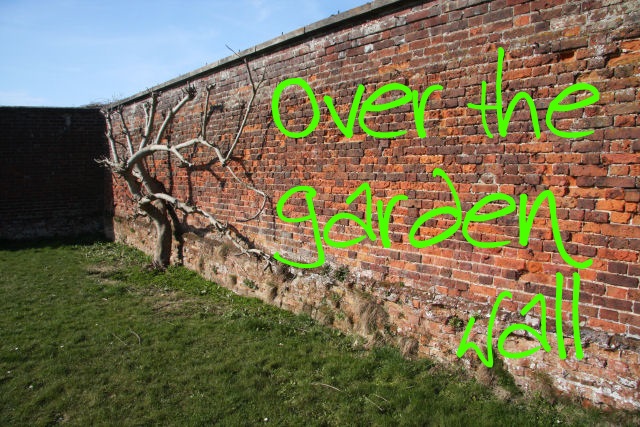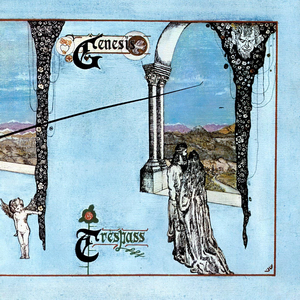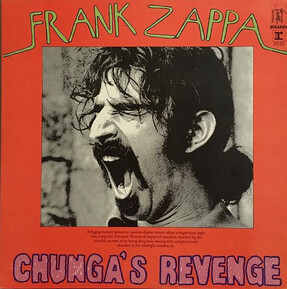 Album title: Emerson, Lake & Palmer
Artist:
Album title: Emerson, Lake & Palmer
Artist: Emerson, Lake & Palmer (ELP)
Nationality: English
Label: Island
Chronology: Debut
Grade: A
Previous Experience of this Artist: Tarkus
The Trollheart Factor: 1
Landmark value: As a band who would both spearhead the prog rock revolution and bring it crashing down with their overblown attitudes and conceits, ELP’s debut has to have pretty massive landmark value. One of the first bands - perhaps the first - to successfully merge classical music and rock and roll, creating something not even hybrid, but entirely new at the time.
Tracklisting: The Barbarian/Take a Pebble/Knife-Edge/The Three Fates (i) Clotho (ii) Lachesis (iii) Atropos/Tank/Lucky Man
Comments: No surprise to hear the keyboards of Keith Emerson taking centre stage from the beginning as the album kicks off with the first of three instrumentals, going through a few changes despite its relatively short length of just over four minutes; organ and piano are the order of the day here, with Carl Palmer making his drumming very evident too, then the first we hear of Greg Lake on vocals is in the twelve-minute “Take a Pebble” on which Emerson is much more restrained, initially at any rate, confining himself to some rippling piano. Lake’s voice is clear and bright, but given the length of the song and ELP’s propensity for instrumentals I assume the bulk of this track will be without vocals.
Hmm. About four minutes in there seems to be total silence, nothing at all, for approximately forty seconds, unless whatever is there is too low in the mix for me to hear. Odd. Then it picks up into a kind of country jamboree thing, falling back then to an acoustic guitar from Lake leading to a rocky piano run from Emerson, which is pretty damn fine. I think maybe I prefer him on the piano rather than the organ. Possibly. Still, ‘twas as I had expected: most of the song’s run is taken up with instrumental workouts. They’re good, though. No pissing around with technical wankery, not yet. Oh wait: here comes the vocal again near the end. Wasn’t quite expecting that.
“Knife-Edge” is shorter, but allows Emerson to go a little wild on the organ, using, according to Wiki anyway, arrangements of Bach melodies. It comes across as a fairly dark little piece, though the organ work sort of offsets that, and not I have to say in a good way. Nevertheless, it’s a decent track. Dark church organ blares as “The Three Fates” begins, this being split into, not surprisingly, three sections or movements, each presumably meant to represent one of the three goddesses believed to have been responsible for the destiny of humans. The Fates, or Moerae, were usually represented as spinning thread, the thread being the life of a human: Clotho, the youngest, spun it, Lachesis, the middle, wove it and Atropos, the crone, cut it, signifying death.
A pretty frenetic piano run takes the second movement, as Lachesis weaves the thread of a human life, this part certainly demonstrating not only Emerson’s undeniable prowess on the piano but his love for and influence by classical music, that dark church organ returning at the end to signify the eldest Fate approaching with her scissors to cut the thread, though there’s also bouncy piano, and something like marimba, perhaps meant to represent the last attempts to hold on to life? Who knows? It’s a pretty well-constructed piece though. From here it’s directly into another instrumental, “Tank” possibly presaging the next album,
Tarkus, with a nice line in bass from Lake and some harpsichord-sounding keys as well as a driving beat courtesy of Carl Palmer, who also provides a drum solo. Great.

I don’t like drum solos at the best of times, but I guess they’re acceptable at a gig. Not, I think personally though, on a studio album.
That leaves us with “Lucky Man”, which brings Lake back in on vocals for a sort of acoustic, folky tune that waltzes along nicely and has some pretty sweet vocal harmonies going on. It’s a nice closer, and I’ve really nothing bad to say about this album.
Favourite track(s): Pretty much everything really
Least favourite track(s):
Overall impression: You know, you have to give ELP tremendous credit for a ground-breaking album, for bringing what would have been seen by most young people as an old, stuffy, boring form of music right into the mainstream, and introducing the record-buying kids to classical. Others had done this before of course, but not to this extent and not with I would think both as much knowledge about and passion for classical music as Emerson and his two pals. Fair play to them. This was certainly different to anything anyone else was doing at the time.
Personal Rating:  Legacy Rating:
Legacy Rating:  Final Rating:
Final Rating: 











:format(jpeg):mode_rgb():quality(90)/discogs-images/R-2835493-1428854238-6576.jpeg.jpg)
:format(jpeg):mode_rgb():quality(40)/discogs-images/R-1387392-1300546365.jpeg.jpg)

:format(jpeg):mode_rgb():quality(40)/discogs-images/R-2030237-1259575888.jpeg.jpg)
:format(jpeg):mode_rgb():quality(40)/discogs-images/R-224207-1470776394-2854.jpeg.jpg)





 I don’t like drum solos at the best of times, but I guess they’re acceptable at a gig. Not, I think personally though, on a studio album.
I don’t like drum solos at the best of times, but I guess they’re acceptable at a gig. Not, I think personally though, on a studio album. Linear Mode
Linear Mode
